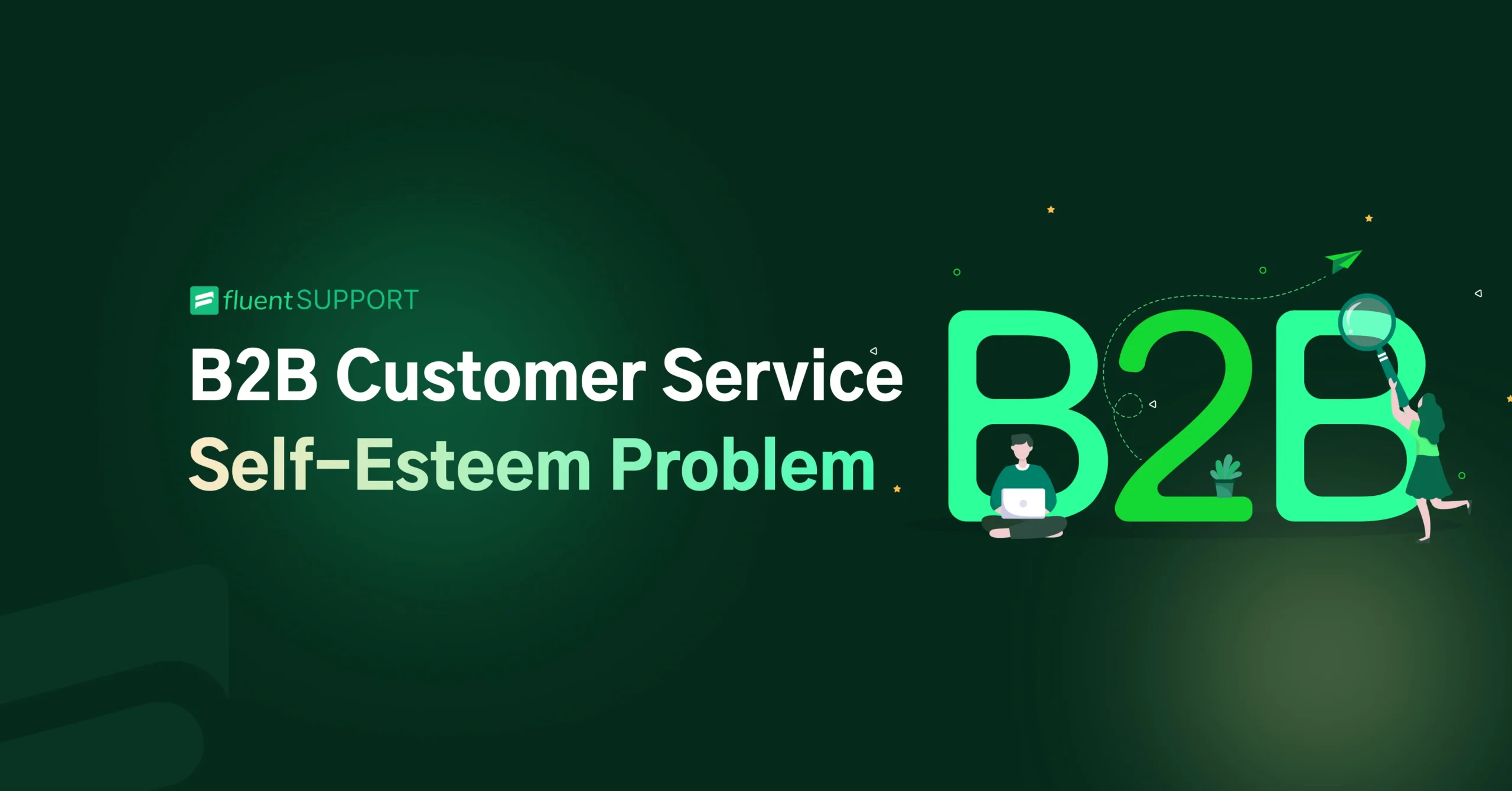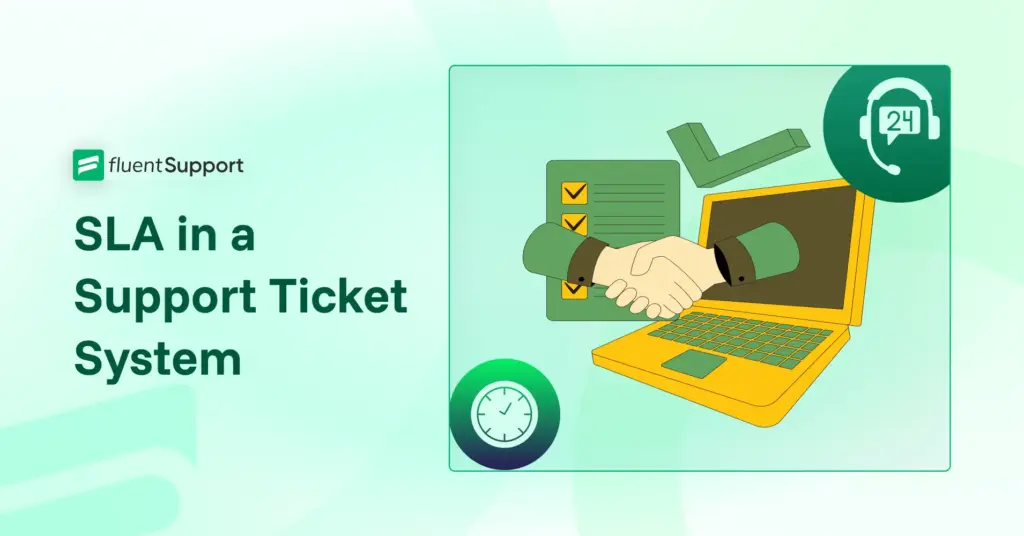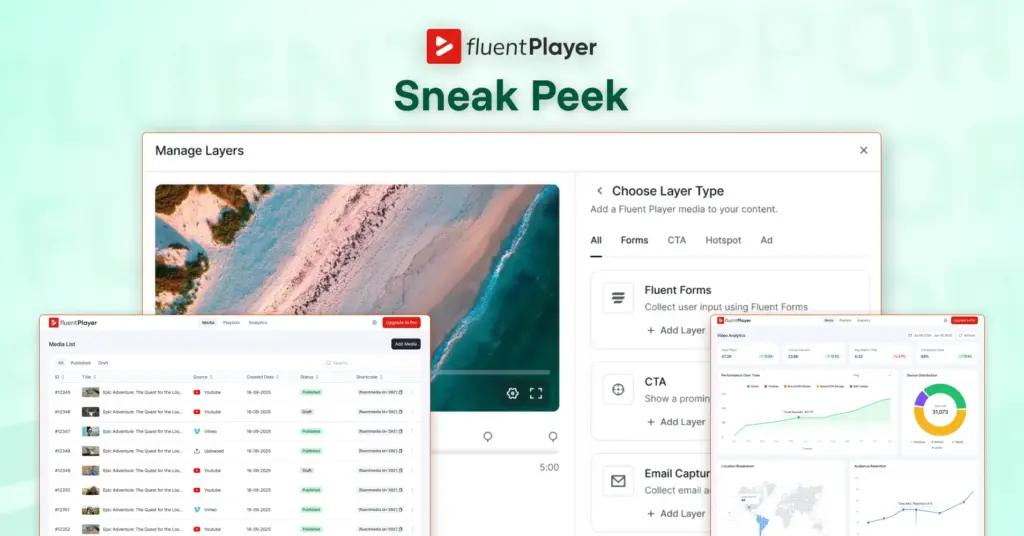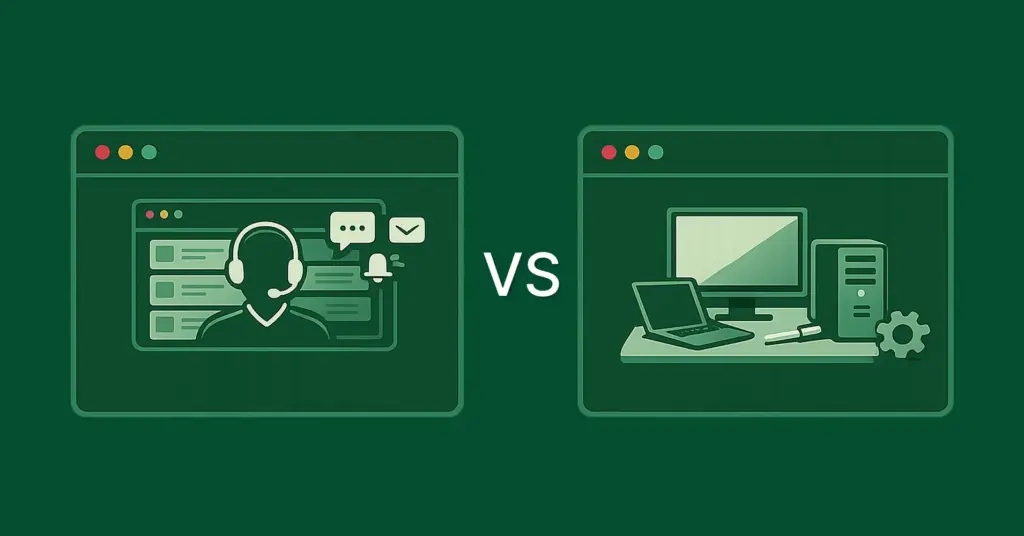
Does B2B Customer Service Have a Self-Esteem Problem?
By Md. Ariful Basher
August 9, 2024
Last Modified: March 14, 2025
Customer service’s self-esteem—this is something almost ignored in the B2B world. It sounds a bit like pop psychology, but just like individuals, a team or an entire department can struggle with self-esteem issues.
For B2B customer service, this can be a productivity killer, but the worst part is that it’s silent. So, how do we recognize it, build it up, and keep it strong? Before we get the answer to these questions, let us know the definition of the term self-esteem.
What does self-esteem mean?
Self-esteem is someone’s or even a group of people’s subjective sense of their overall value and level of confidence in their abilities and attributes for a particular task or responsibilities.
Recognizing the Problem
The first step and the obvious step is to know if your B2B customer service team has a self-esteem problem. Here are some signs that you may try to find:
Perception of the Role: Customer service roles are somewhat undervalued in many companies. Often considered less important compared to sales or product development. But if you think a bit, there are the all-rounders in the company.
Lack of Recognition: Achievements in customer service are rarely celebrated to some extent. This can create demotivation in the team.
Limited Career Growth: Many customer service roles lack clear paths for career advancement. As a result, the team might start exploring different paths instead of spending time to improve the skill.
Low Morale: Customer service is not easy work to do. So spending a hectic work load day after day causes a lack of enthusiasm. This can hammer the interaction with customers, making them less productive.
Fear of Escalation: Employees hesitate to escalate issues, make decisions independently, or follow their experienced judgment.
Negative Feedback Sensitivity: Every piece of negative feedback hits hard and lingers longer than it should.
Avoidance of Responsibility: They noticeably avoid taking ownership of errors or even achievements.
If these symptoms sound familiar, your team might be dealing with a self-esteem issue, and your business is at risk.
Building Self-Esteem in Customer Service
Now that we figured out that the customer service team is suffering from low self-esteem, here is what we can do to improve.
Establish a clear goal
Set a few defined scopes from where we can start working to improve team self-esteem.
Onboarding Success: Support teams play a vital role in onboarding customers by addressing issues promptly and accurately, even in some cases proactively. Aim could be to increase the percentage of users who reach the “onboarded” stage, which can be considered a measurable milestone.
Retention and Growth: Increase the number of customers’ retention and identify opportunities for upselling, scope can be another big point for the team. This team is often the first to spot churn factors and potential business opportunities.
Customer Satisfaction: Tracking and improving Net Promoter Scores (NPS) and Customer Satisfaction Scores (CSAT) can be a milestone at the individual level.
Improve customer service self-esteem
Okay, we have set the milestone. Now let’s go through the improvement steps.
Foster a culture of recognition
Regularly acknowledge and celebrate the achievements of the customer service team. This can be through an internal communications channel, team meetings, or public announcements.
Personal recognition for outstanding service helps boost morale, which impacts team performance. Recognizing employees who go one step further can motivate the entire team.
Provide career development opportunities
Offer training and mentorship programs more than often. By helping new team members catch on, it not only improves their performance but also improves the team’s positive outcomes.
Invest in Technology and Tools
Implement self-service portals and knowledge base systems to empower customers to find solutions by themselves. This reduces the support ticket load on service teams and allows them to focus on more complex issues.
Use a functional support ticket management system for the team. This will give them the leverage to improve first response time (FRT).
Align customer support with customer success and other teams
Encourage collaboration among customer support and other teams like success, marketing, and product. All the teams should work towards common goals like customer retention, satisfaction, and product feedback.
Establish clear lines of communication between the teams. Team meetings and sharing ideas can help ensure everyone is on the same page and working towards the same objectives.
Establishing a supportive environment
A supportive environment is crucial for maintaining a high level of self-esteem. Foster an environment where open and honest communication is encouraged. Inspire team members to share their thoughts, concerns, and ideas without fear of judgment.
Pair less experienced team members with experienced members. This not only builds skills but also helps newer members feel more connected and supported.
Once in a while, good team-building activities can strengthen relationships and improve overall enthusiasm. It’s like hitting the refresh button for your team’s spirit.
Implementing processes that boost confidence
Ensure there are clear and straightforward paths for escalation. Provide easy access to resources like knowledge bases, FAQs, and troubleshooting guides. The more information they have easy access to, the more confident they’ll feel.
Establish regular feedback loops where team members can discuss what’s working and what’s not. This continuous improvement cycle helps maintain high standards and quality service.
Nurturing self-esteem over time
Building self-esteem isn’t a one-time project—it’s an ongoing process. Have regular one-on-one check-ins with team members to discuss their progress, challenges, and lackings.
Encourage and support continuous professional development, even on a personal level. Whether it’s attending workshops, webinars, or pursuing certifications, these opportunities can significantly boost confidence.
Never forget to celebrate team milestones as well as individual achievements.
The Ripple Effect of High Self-Esteem
When your B2B customer service team has high self-esteem, it doesn’t just benefit them—it benefits your entire business. Confident teams provide better service, leading to higher customer satisfaction and customer loyalty.
Teams with high self-esteem are more efficient and effective in their roles, leading to better overall performance. High self-esteem contributes to a positive workplace culture, which can attract and retain top talent.
Wrapping It Up
With the right strategies and a consistent effort, you can build and maintain a confident, empowered, and high-performing team. Remember, it’s about creating an environment where your team feels valued, supported, and equipped to tackle any challenge. So accept the fact that B2B customer service has a self-esteem problem and make an effort to improve.
Start off with a powerful ticketing system that delivers smooth collaboration right out of the box.












Leave a Reply